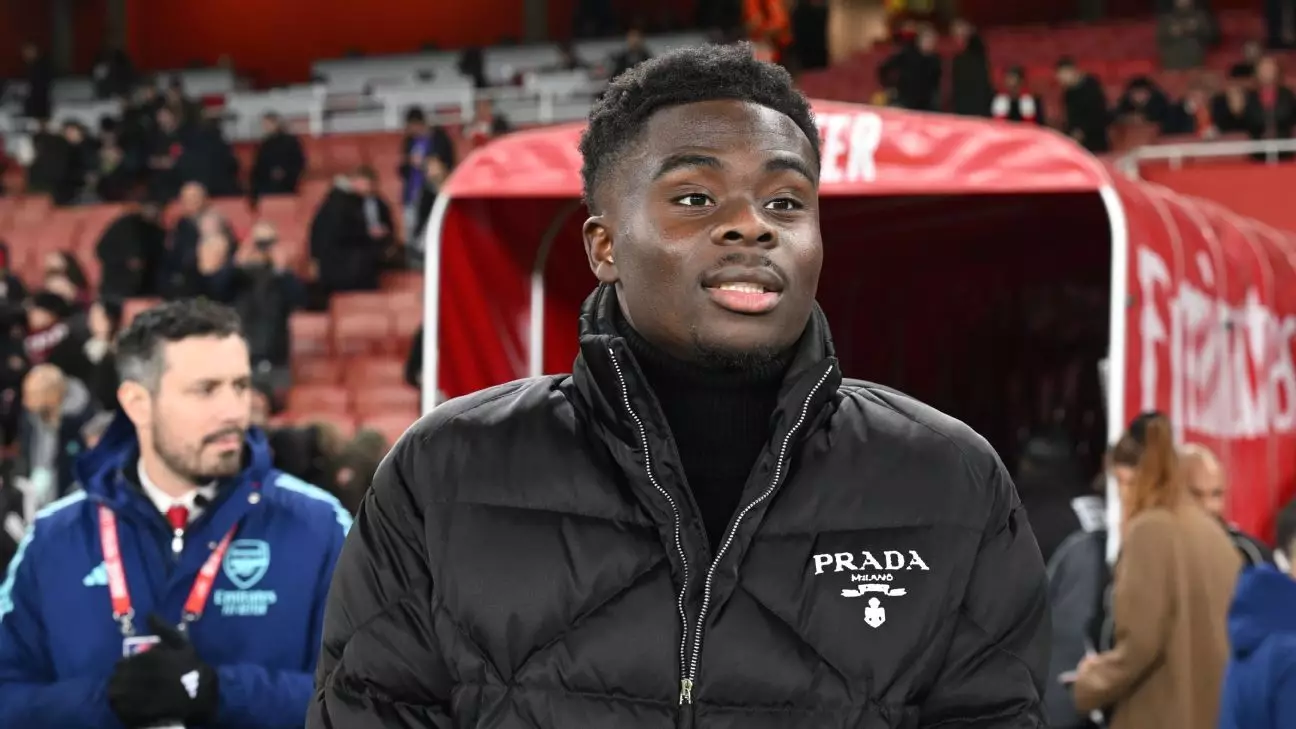In the fast-paced world of professional football, the mental and physical pressures can be overwhelming. Recently, Arsenal’s head coach Mikel Arteta emphasized a crucial aspect of athlete care: the necessity for rest, as illustrated by the case of winger Bukayo Saka. Following a hamstring injury that required surgery, Saka is anticipated to be sidelined until March. This situation serves as a prime example of the importance of granting athletes the time and space they need to recover fully, both physically and mentally.
Arteta has been vocal about the need for Saka to take time off to recuperate. His statement, “he needs to get away for a few days and refresh,” underscores an often-overlooked component of sports training. Traditional perspectives in athletics may champion relentless training and commitment. However, Arteta’s message is a refreshing reminder that success in sports also hinges on the athlete’s mental state and overall well-being. By encouraging Saka to spend quality time with family or take a personal respite, Arteta is not just considering the athlete’s physical health but also advocating for emotional rejuvenation.
Saka’s absence has undoubtedly been felt by the team, contributing to their exit from the FA Cup and putting them at a disadvantage in the Carabao Cup. This raises interesting questions regarding team dynamics and performance under pressure. Arsenal, facing increasing scrutiny and expectations, must navigate these challenges without some of their key players, including Gabriel Jesus, who suffered a serious ACL injury. Arteta’s handling of this situation reveals the broader issue of squad depth, reliance on younger players, and the potential repercussions of injuries on overall team morale.
The current circumstances also highlight the necessity for comprehensive management strategies that prioritize player health and performance. Injuries to players like Takehiro Tomiyasu and Ben White further emphasize a critical need for proactive measures in training and recovery protocols. Clubs must not only invest in their athletic abilities but also in their mental resilience and physical health, recognizing that human beings can only sustain so much before exhaustion becomes detrimental.
The ongoing developments regarding Bukayo Saka’s recovery encapsulate a broader narrative in professional sports, where mental and physical health is paramount. Mikel Arteta’s advocacy for Saka’s recovery is a significant reminder of the importance of balancing professional commitments with personal well-being. As Arsenal navigates its challenges without key players, it is a moment to reflect on how clubs can support their athletes holistically, ensuring that when they return to the pitch, they are not just physically prepared but mentally refreshed and ready to perform at their best.
